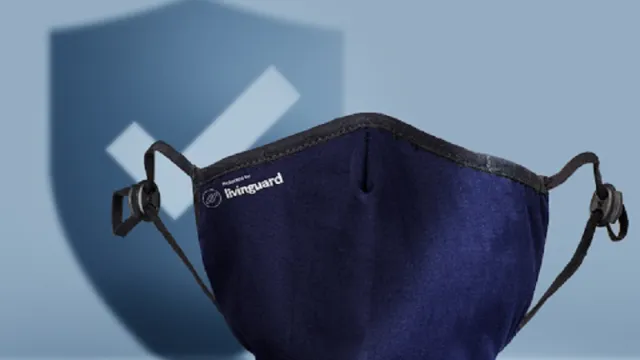Swiss firm stirs Kenya market with germ-destroying face masks

Swiss firm stirs Kenya market with germ-destroying face masks
Livinguard, a Swiss-based firm with interests in self-disinfecting hygiene technology has launched into Kenya with the roll-out of germ-destroying Livinguard face masks.
The mask technology is billed to kill all viruses and bacteria, including SARS-COV-2 and other strains responsible for COVID-19.
At the moment, the firm is supplying the masks directly to hospitals and clinics and has also partnered with pharmacy chains GoodLife and HealthyU to supply the products to retail customers.
Swiss Medtech Company Livinguard rolled out the award-winning face mask in December last year and confirmed the mask is capable of destroying 99.9 percent of the coronavirus and bacterial infections effectively throughout six months of washing and wearing.
According to the company, the mask, which can survive multiple washes, is effective in preventing coronavirus and bacterial infections throughout six months of washing and wearing. This replaces roughly 210 single-use face masks.
“The new Livinguard mask is, for the first time, a preventative protection for the wearer, cutting off germs of every type, thanks to positive charges embedded in the mask that break the cell membranes of bacteria and viruses," said Shivani Swamy, vice president for sales and key accounts in the Middle East and Africa.
Read also: Novel penile implant at AKUH gives hope to region’s men with erectile dysfunction
So, how does the technology work? The company says that when a surface or material is treated with Livinguard technology, it converts the material’s negative ionic charge into a positive charge, creating a magnet for bacteria and viruses.
Microbes, such as viruses or bacteria, often have a negative charge on their outer walls, so any contact with the positively charged self-disinfected material first binds and then permanently destroys the microbes.
And since the technology permanently deactivates the virus and bacteria on the surface of treated masks, it dramatically reduces the chances of cross contamination.
The masks brand will be trading three different types of the product at different costs. The street mask will be going for Kes1,900, which equates to Kes9 per use while the pro-mask will be going for Kes3,200 on average. The third category – Ultra mask – which is preferred for healthcare workers, will cost Kes4,000.
Currently, frontline workers in Switzerland, Germany, Japan and Singapore are using Livinguard antiviral and antimicrobial masks because they trust the technology will keep them and the public safe, the company said.
Livinguard has been globally feted in 2021, named in September as the Sustainability Product of the year by the Business Information Group, and prompting the World Economic Forum to name its producer, Swiss Medtech company Livinguard, a Global Innovator.
“The roll out of the Livinguard mask is a priority for our team as a way to offer an entirely new level of personal protection for healthcare workers and consumers,” added Shivani.
The new mask has received accelerated approval as a medical mask by the European Union, with universities in Berlin, Germany and Tucson, Arizona, USA confirming its self-sanitizing fabric killing 99.9 percent of Covid-19 pathogens.
In April 2020, the Kenya Bureau of Standards and the Ministry of Health issued guidelines on the use of surgical masks and other facial coverings, recommending the following masks for use against the COVID-19 virus-surgical masks: Covered by KS 2636: 2016, particle masks: Covered by KS 2409-6:2018 which are filtering face masks that protect against dust and re-usable cloth coverings which offers limited protection against coronavirus infection.
Studies have shown that cotton and surgical masks become magnets for bacteria, creating new sources of infection, if not changed frequently.
A study in the US, funded by Livinguard, found 79 percent of Americans don’t wash cloth face masks after each use, and 68 percent reuse one-time-use masks.



